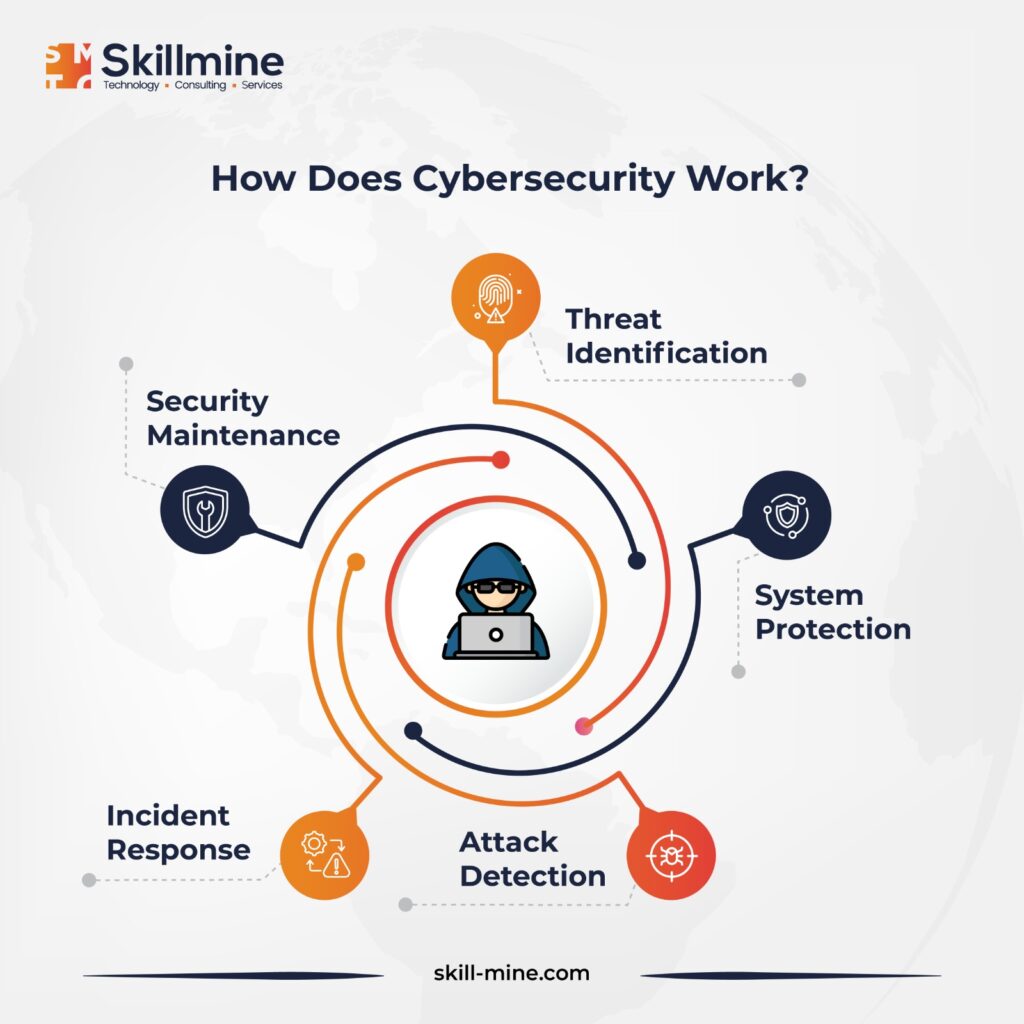A study by ImpactLab says that the cost of cybercrime is increasing significantly and is expected to grow by as much as 15% over the next five years. It’s estimated that by 2025, cybercrime will cost the world roughly $10.5 trillion every year. In an era dominated by digital transformation, the importance of robust security measures for businesses cannot be overstated. As cyber threats continue to evolve in complexity and frequency, organizations face increasing risks to their data, operations, and reputation. However, beyond the deployment of technological solutions lies the cornerstone of effective cybersecurity: a strong security culture.

Security Culture and Its Importance
Security Culture is a collective set of values, attitudes, and behaviors within organizations aimed at safeguarding assets like people, data, and systems. It’s a proactive stance, highlighting security as a business priority involving everyone. Cultivating this culture is an ongoing endeavor, adapting to evolving threats, technologies, and regulations.
Benefits of a Strong Security Culture
- Mitigates cyberthreats: With employees grasping the importance of cybersecurity services and adept at safeguarding assets, the likelihood of falling for scams or making errors diminishes.
- Fosters customer trust: A robust security culture showcases your commitment to privacy and security, fostering trust among customers.
- Facilitates compliance: By ingraining a strong security culture, your organization is better equipped to adhere to regulations and standards like GDPR, PCI DSS, HIPAA, and ISO 27001, ensuring employees adhere to requisite security controls and procedures.
Security- A collective responsibility
Companies fostering strong security culture consist of employees who grasp security risks and take preventive measures. You may wonder, “Why rely on the IT department if everyone knows about security risks?” Well, not all staff need to be IT experts; that expertise remains with the IT team. However, it‘s crucial for all employees to have a basic understanding of threats to identify risky situations and seek IT assistance when necessary. Building a robust security culture isn’t about turning everyone into cybersecurity experts but enabling each employee to recognize when expert assistance is required.
Practical Tips to Cultivate Security Culture
Effectively convey IT security expectations and requirements: Understanding and adhering to the company’s security protocols starts with clarity. According to a study by TechRepublic, 88% of employees were unaware of their organization’s IT security policy, often due to its complexity and presentation as a cumbersome document. Simplifying policies into concise, plain-language documents ensures accessibility for all employees. These policies should be distributed during onboarding and include mandatory participation in security awareness training to educate employees about potential risks.
Establish a structured reporting mechanism and verify staff utilization: Effective communication is paramount. You may notice a growing emphasis on communication within company culture, and rightfully so. Implement a transparent process for employees to reach out to the IT department when needed. Ensure clarity on whom to approach for security-related queries and how to report potential risks or breaches. It’s acceptable to assess employees’ familiarity with the process. Consider conducting phishing test emails to gauge reporting accuracy and intra-team warnings. Understanding the reporting protocol is essential, but actively reporting and discussing threats is vital for cultivating a robust security culture.
Get top managers and team leaders on board: Leadership sets the organizational tone; their commitment to security influences employees’ attitudes. By prioritizing security, managers allocate time for training and avoid pressuring staff to overlook precautions. All managers should undergo security awareness training, modeling responsible behavior and advocating its importance to the team. When managers prioritize security alongside other tasks, their dedication often resonates in employee behavior.
Assess employee awareness and attitudes to monitor cultural shifts over time: Establish a system for gauging employee engagement and perceptions. For instance, track the completion rate and promptness of awareness training. Multiple reminders may indicate lower engagement, while swift completion suggests a strong commitment to IT security. Tailor awareness activities to address specific job roles or circumstances, such as remote work, to enhance relevance and engagement.
Illustrate each employee’s contribution: At times, poor security habits stem from the mindset of “it won’t happen to me, so why bother?” That’s why empowering employees to grasp their role in organizational security is crucial. Security isn’t solely IT’s responsibility; it’s everyone’s duty. Reinforce this through various activities, like phishing training, which allows individuals to connect with the risks on a practical level. Simulated phishing emails highlight the possibility of receiving such threats and the importance of recognizing and addressing them promptly. This underscores the significance of vigilance and taking security seriously.
Recognize exemplary security practices: By highlighting individuals or teams consistently adhering to security protocols, you set positive examples for the entire company, promoting social recognition and motivation. Integrate security seamlessly into the workday with passive awareness tactics like cybersecurity posters and brief, easy-to-follow training sessions.
Ensure that your security awareness efforts remain ongoing: Consistency is key to maintaining security at the forefront, reinforcing a robust security culture. Implement practices such as releasing bi-monthly awareness training courses supplemented with regular reminders of good habits. As culture evolves, continuous security efforts with the help of cybersecurity services providers are vital to sustain or enhance progress.
Conclusion
While building a robust security culture may seem challenging, the rewards are invaluable. With dedicated commitment, resources, and leadership, businesses can reap the benefits: enhanced security and resilience, streamlined collaboration across departments, regulatory compliance, and bolstered customer confidence. Moreover, a strong security culture equips organizations with the readiness to confront emerging threats, empowering them to withstand and recover from cyberattacks efficiently. Skillmine’s Security Operations Centre services provide businesses with expert support to navigate these challenges, ensuring they remain shielded from the ever-present threat of cyberattacks.
Looking for expert technology consulting services? Contact us today.





